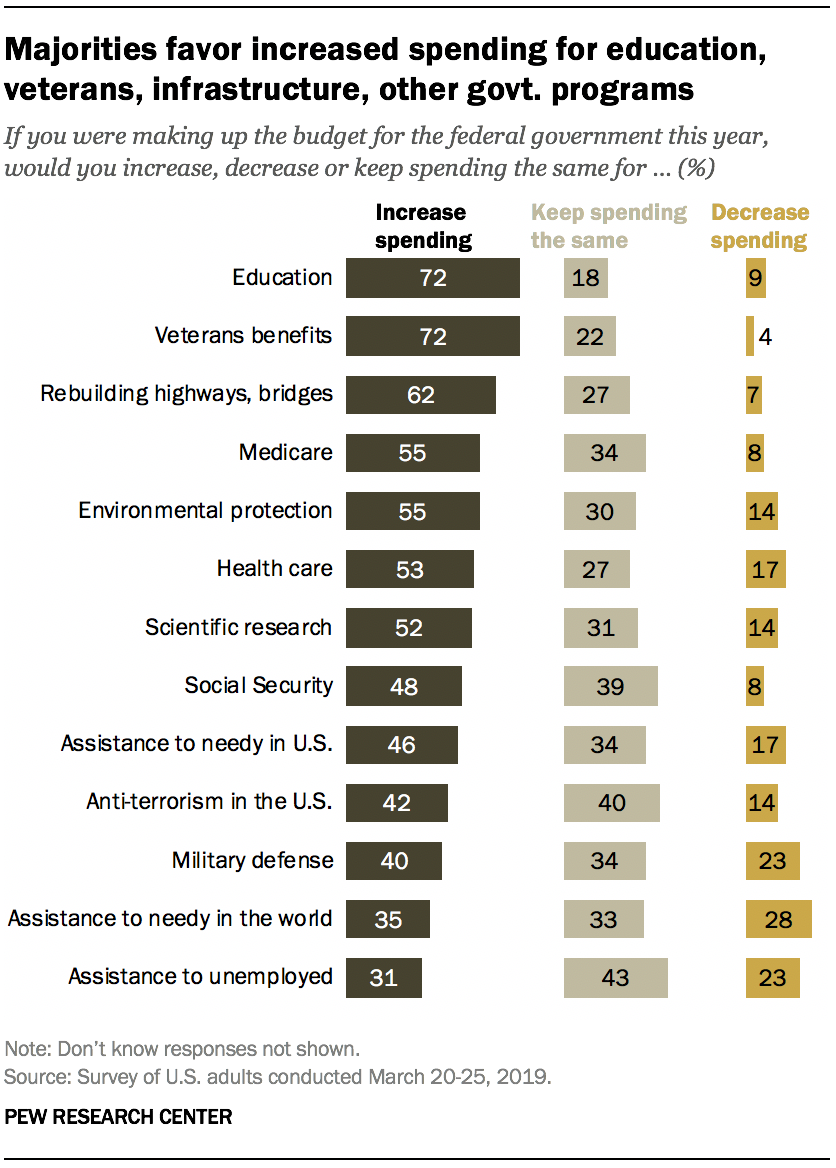- Joined
- Mar 27, 2014
- Messages
- 65,196
- Reaction score
- 35,399
- Location
- Colorado
- Gender
- Male
- Political Leaning
- Slightly Liberal
Now we are getting somewhere.
Because we have a unified budget any move made or any change year to year impacts our overall fiscal condition and that includes association to our economy of which the government is an active participant in.
Trump's tax cuts took a portion of revenue out of the equation, the overall fiscal condition of the nation is slightly worse resulting in increased deficits, of which Trump's actions are a contributor to.
Worse, all of this is happening at a time when the economy is doing well and potentially approaching the next economic pullback. This is a time where deficits should be declining, as they were before Trump and the 115th Congress changed a few things.
Now we can argue all day long about a decades old decision on impacts and why we went to a unified budget, argue about the costs of Medicare or Social Security (or any other part of the unified budget.) But at the end of the day all revenue is a source for that unified budget and all outlays are an expenditure for that unified budget. Ideologically we can disagree on any revenue and any spending, but they are all linked and have been for decades now no matter if you agree with those aged decisions or not.
Social Security benefits being more than what was received in a given year, or costs of Medicare going up, or the spending for any area of the government going up does not remove the liability of Tax Cuts changing revenue. It all matters and it is devoid of reality to ideologically decide one change is a fault and another is not when it is all unified.
Yes, basically the unified budget means we're on pay as you go for everything, including Medicare and SS, and have been forever. That's why the right wing talking point - "47% pay no taxes!" is so intellectually dishonest. Anyone working and getting a paycheck pays payroll taxes, and that money funds general expenditures same as income taxes do, and income taxes and payroll taxes fund entitlements like Medicare and SS. They're all government revenues and government expenditures and a unified budget means there is no real distinction between payroll taxes paid by nearly everyone working, and income taxes.
So this thing about the "trust funds" running out is really a distraction. Whatever requirement that SS and Medicare be paid out of current taxes or accumulated "trust funds" is easily changed with legislation. The issue is that for decades, starting in earnest with Reagan, surpluses from payroll taxes have been used to fund general government. That was fine, of course, because it allowed income taxes to remain lower than they'd have been without workers contributing more in payroll taxes than it cost to fund entitlements.
Now that that's reversing, and we'll have to collect MORE in income taxes to reimburse the borrowed 'trust fund' expenditures over the decades, it's a crisis!!! It's not a crisis, it's a problem of political will, what our priorities are. I have no doubt this "crisis" will be solved by either lowering benefits or jacking up payroll taxes so that we again run 'trust fund' surpluses, which again allows income taxes to remain lower than they'd otherwise be.

